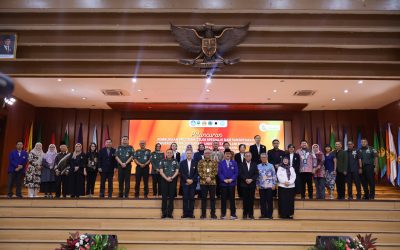West Java, Indonesia — A multi-year population-based study by Universitas Padjadjaran (Unpad) has revealed that young and school-aged children in two communities in Bandung district face significantly higher risks of influenza infections than other age groups. The study, led by Dr. Dwi Agustian from the Department of Public Health, Faculty of Medicine, Unpad, is one of the few in Indonesia to measure influenza incidence in real-world, community-based settings rather than hospitals.
The research, conducted between 2008 and 2011 in Cileunyi and Soreang, provides critical insights into how influenza circulates among the general population and how frequently people get infected. Unlike previous hospital-based studies, this one tracked over 3,000 individuals with influenza-like symptoms at local public health centers and tested them using PCR diagnostics. The results showed that children under five years old had the highest incidence of symptomatic influenza A and B, followed by school-aged children.
“We observed that influenza hits children the hardest and most frequently,” said Dr. Agustian. “This is important data to support policies for influenza vaccination, especially among children in low- and middle-income countries like Indonesia.”
The study also tracked how different influenza strains, including the pandemic H1N1 virus in 2009, circulated throughout the region. It found that flu viruses are active almost year-round, with several seasonal peaks that often align with periods of high rainfall. This makes it difficult to determine a single best time for mass vaccination—though the authors suggest it could be done ahead of the rainy season or adjusted to specific needs, such as the Hajj pilgrimage season.
Importantly, the research addresses a critical gap: lack of baseline data for guiding national influenza prevention programs. Despite WHO recommendations, influenza vaccination is still not part of Indonesia’s national immunization schedule, partly due to insufficient evidence on community-level burden.
By quantifying how many people get flu each year—and who is most at risk—this study offers much-needed evidence for targeted public health interventions, especially in vulnerable child populations.
This work supports Sustainable Development Goal (SDG) 3: Good Health and Well-being, by offering concrete data for infectious disease prevention. It also reflects Unpad’s growing contribution to evidence-based public health, further enhancing its position in the Times Higher Education (THE) Impact Rankings as a university committed to solving real-world health challenges.






0 Comments